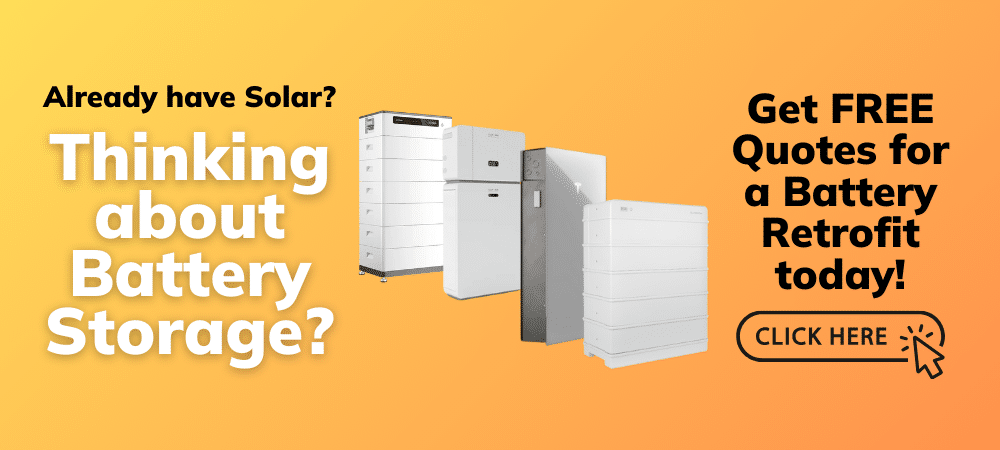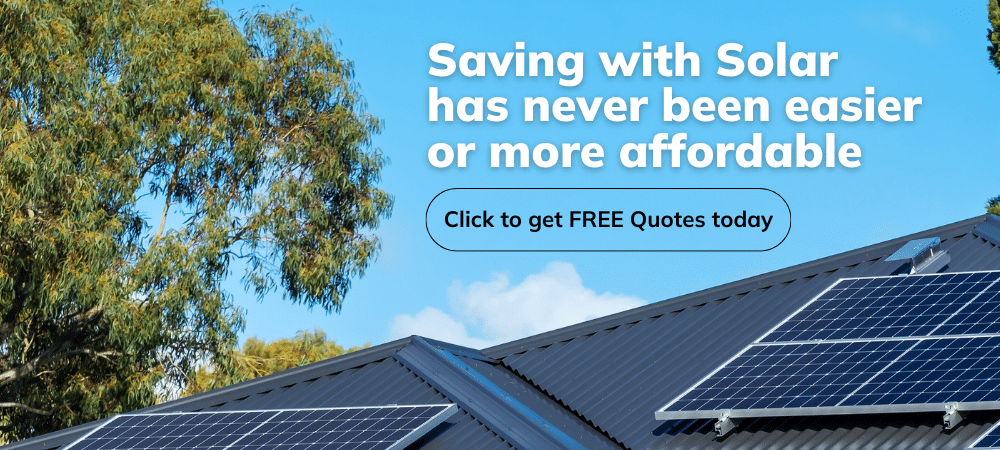Commercial Solar Rebates, Grants & Incentives
Solar for businesses in Australia has never been easier, with access to various commercial solar rebates, business solar grants and commercial solar incentives to install solar and energy efficient components. These benefits vary from state to state and are dependent on the size and type of systems installed and your business’s eligibility. This page covers the most common types of benefits available. We recommend speaking with the relevant governing bodies in your state for more information as needed. You can also get free solar quotes here at Energy Matters.

On this page
Commercial solar rebates, grants & incentives at a glance
Please note the following:
STC = Small-scale Technology Certificate
LGC = Large-scale Technology Certificate
FiT = Feed-in Tariff
| STATE | STCs < 100kW | LGCs > 100kW | STATE BUSINESS SOLAR REBATE | FiT |
|---|---|---|---|---|
| VIC | Yes | Yes | No | Yes |
| NSW | Yes | Yes | No | Yes |
| QLD | Yes | Yes | No | Yes |
| SA | Yes | Yes | Yes (City of Adelaide) | Yes |
| NT | Yes | Yes | Yes | Yes |
| WA | Yes | Yes | No | Yes |
| TAS | Yes | Yes | No | Yes |
| ACT | Yes | Yes | Yes | Yes |
Federal commercial incentives
The following commercial solar incentives are available to all Australian businesses, irrespective of which state they are located in. Conditions may apply.
Commercial solar systems and Small-Scale Technology Certificates (STCs)
It is a common misconception that STCs are only available to residential customers. All eligible renewable energy systems under 100kW can access this federal incentive.
What are STCs and how can I access them for my commercial system?
Your system, whether a Solar PV System, Wind Turbine or Hydro System, will be assigned a designated number of STCs. These STCs are equivalent to 1MWh (megawatt hour) of energy displaced or generated by the renewable energy system. The amount of STCs assigned to your system will be dependent on the expected MWh of energy displaced or generated over the course of 5 years or a single maximum deeming period.
Example
If you were to install a system with an expected generation capacity of 100MWh over 5 years, you would be assigned 100 STCs for your system.
Each STC has a value that is determined by the market. The current value of 1 x STC (as of December 2022) is $37. If your system has 100 x STCs, you could expect that your total STC value is $3,700.
The combined value of these STCs is usually deducted from the purchase cost of your system. Your installer will provide a point-of-sale discount and sell the STCs themselves. You can sell the STCs, via the STC Clearing House, but you will take on the risk of the fluctuating STC market.
Example
If you purchase a $10,000 solar PV system, with a total of 100 STCs assigned to the system, you could expect the final price of your system to be $6,300 after the discount on the value of the STCs.
Commercial systems and Large-Scale Generation Certificates (LGCs)
When a system of 100kW + is installed, STCs no longer apply. Instead, your system will be eligible to produce LGCs. Your business would be classified as an ‘Accredited power station’.
What are LGCs and how can I access them for my commercial system?
Each year, your business can make a claim for the energy generated by your system. 1MWh (megawatt hour) is equivalent to 1 x LGC. These LGCs can be sold to entities required to offset their emissions in accordance with the Renewable Energy Target.
Unlike STCs, the process of application, claiming, and selling can be a complicated process. The following steps must be followed to generate LGCs:
- Apply to become a ‘registered person’ via the REC Registry. A registration fee is required. Only one person in the organisation can be a registered person and this person is responsible for generating LGCs. The application assessment process can take 6 weeks. If successful, your business will become an ‘accredited power station’.
- Use the LGC general formula to calculate the LGCs generated in a reporting period.
- Update the REC Registry with power station generation data
- Create LGCs. This process requires assessment and validation via the REC Registry.
- Register the LGCs and pay the LGC creation fee
As you can see, the process is far more laborious than that of STCs but the value of LGCs is greater than STCs. The current value (as of December 2022) for 1 x LGC is $65.
Read more about business grants, incentives and rebates:
Upgrading an existing commercial solar system
Suppose you upgrade an existing solar system and wish to register as an accredited power station. In that case, the Clean Energy Regulator (CER) will not consider any part of the system that has already received STCs.
For example, if you had an existing 50kW system and claimed STCs, and upgraded to a 150kW system, you would not be able to generate LGCs for 50kW of the 150kW system. You must demonstrate to the CER that you can correctly monitor the output of the separate components to accurately determine the solar generation.
Commercial solar Feed-in Tariff (FiT)
The excess energy generated by your solar system can either be exported to the electricity grid or your business’s solar battery storage. When the energy is exported to the grid, you will receive a financial credit in the form of a FiT. Every kWh exported to the grid will receive a set amount as designated by your solar retailer.
The rate can vary depending on several factors:
- The rate set by your retailer
- Whether you are a small, medium, or large business
- Contracts between your business and a retailer – you may be subject to a higher FiT if you have a special agreement with your retailer
Example
If your business has a rate set at 7 cents/kWh, and you export 20kW in a day, you can expect a credit to your account to the value of $1.40.
Read more about battery storage and inverters:
State commercial solar rebates and incentives for commercial systems
The following information is accurate as of December 2022. The information contained does not include commercial solar rebates, grants, or commercial solar incentives for smaller renewable programs, such as LED replacement. Please refer to your state government website for information on these programs. For information pertaining to EV chargers, please visit our Commercial EV Chargers page.
South Australia
City of Adelaide: Sustainability Incentives Scheme
Incentive | Rebate Amount |
Business Solar PV | 20% up to $1,250 Solar PV system (10 kW to <20 kW) 20% up to $2,500 Solar PV system (>20 kW) |
Climate Smart Buildings | Up to $10,000 for innovative building approaches that include two or more of the following:
|
Climate Smart Buildings Implementation | Up to $40,000 for project management and implementation of innovative, whole-building approaches, including two or more meter board upgrades for electrification, shared solar (sharing of solar electricity between tenants, >207kW), whole-of-building resource recovery systems, active transport and EV charging, or water-saving devices. |
Electric Vehicle Charging Stations | Up to $1,000 for installing a one-way EV charging station(7kW to <50 kW) at a residential or commercial property and up to $2,000 for installing a smart EV charging station (7kW to < 50 kW). Smart stations include those with demand management or two-way charging capabilities. |
Energy Storage | 50% up to $2,000 Battery energy storage |
Switchboard upgrades | 50% to $5,000 to support electrification, solar and/or battery installation, and EV charging. |
For more information, please visit our Business Solar Energy Incentives SA page.
Northern Territory
Home and Business Battery Scheme
Eligible Northern Territory businesses can access commercial solar grants of $400 per kilowatt hour of useable battery system capacity, up to a maximum grant of $5,000. The business solar grant can be used for funding to buy and install:
- a solar photovoltaic (PV) with an eligible battery and inverter
- an eligible battery and inverter only, if you already have solar PV installed.
You can’t use the funding to buy and install solar PV panels and inverters where they are not being installed simultaneously with a battery.
To receive the business solar grants, businesses must meet the following criteria:
- Is a Territory Enterprise; and
- holds a valid Australian Business Number (ABN) which was issued in respect of the business at least 6 months prior to submitting an application.
- Battery systems to be installed at a property to which a basic connection service is offered by an electricity network provider must be on the HBBS Approved Battery List.
- Battery systems to be installed at a property to which a basic connection service is not offered by an electricity network provider are not required to be on the HBBS Approved Battery List but must meet all the other requirements at clause 3.2 (see website).
Electric Vehicle Charger Grants Scheme
The Northern Territory Government’s Electric Vehicle Charger Grants Scheme provides up to $2,500 in grants for purchasing and installing EV chargers at businesses.
The scheme is designed to help people switch to electric vehicles by making installing EV chargers easier and reducing emissions. It runs from June 28, 2024 to June 30, 2025. Applications are administered on a first-come, first-served basis.
To be eligible, you must provide proof of being an NT-registered electric vehicle and meet the property requirements relevant to you as a business owner.
For further information, please visit our Business Solar Energy Incentives NT page.
Australian Capital Territory
Sustainable Business Program Rebates
Rebate: Eligible businesses can receive rebates of up to $10,000 for energy and water efficiency upgrades and up to $3,000 for EV chargers. All rebates require a co-contribution from the business.
Free onsite assessments: Businesses can book a free assessment from technical experts.
Tailored action plans: Businesses can receive independent advice and a tailored action plan.
Resources and training: Businesses can access resources and training.
Accreditation: Businesses can become accredited and recognised as Sustainable Businesses.
Click our Business Solar Energy Incentives ACT page to learn more about how your business can start saving on energy costs.
Victoria
Businesses in Victoria currently have NO solar rebates.
New South Wales
Businesses in NSW currently have NO solar rebates.
Queensland
There are currently NO rebates or incentives for commercial solar in Queensland.
Western Australia
There are currently NO rebates or incentives for commercial solar in Western Australia.
Tasmania
There are currently NO rebates or incentives for commercial solar in Tasmania.
Sources: Australian Government – Clean Energy Regulator (CER), Solar Victoria, NT.GOV.AU
How to find the right incentives?
The best way to find the right incentives for your business is to research the options available in your state or territory and contact your local council and energy retailer. You can also consult with a solar installer or energy consultant who can help you identify the incentives that you are eligible for and advise you on the best way to finance your solar panel installation.
Additional considerations
When considering installing a commercial solar system, it is important to factor in the following:
- Your energy consumption: The size of your solar system should be based on your energy consumption needs.
- Your roof space: You will need enough to accommodate the solar panels.
- Your energy retailer: Some energy retailers offer better feed-in tariffs than others.
- Your budget: The cost of a commercial solar system will vary depending on its size and the incentives you are eligible for.
By considering these factors and researching the incentives available, you can make an informed decision about whether installing a commercial solar system is the right investment for your business.
Is solar energy suitable for your business?
Solar energy has numerous advantages that are worth investigating. Investing in solar will minimise your operational costs, reduce your company’s carbon footprint, and prepare it for the future. A commercial property with a solar installation is excellent for business.
For a more precise idea of the financial benefits of solar power for your business, it’s always wise to get quotes from reputable solar installers. You can use resources like Energy Matters‘ free solar quote service to get quotes from pre-vetted solar retailers in your area and compare plans to find the best fit for your commercial solar system needs.
















































